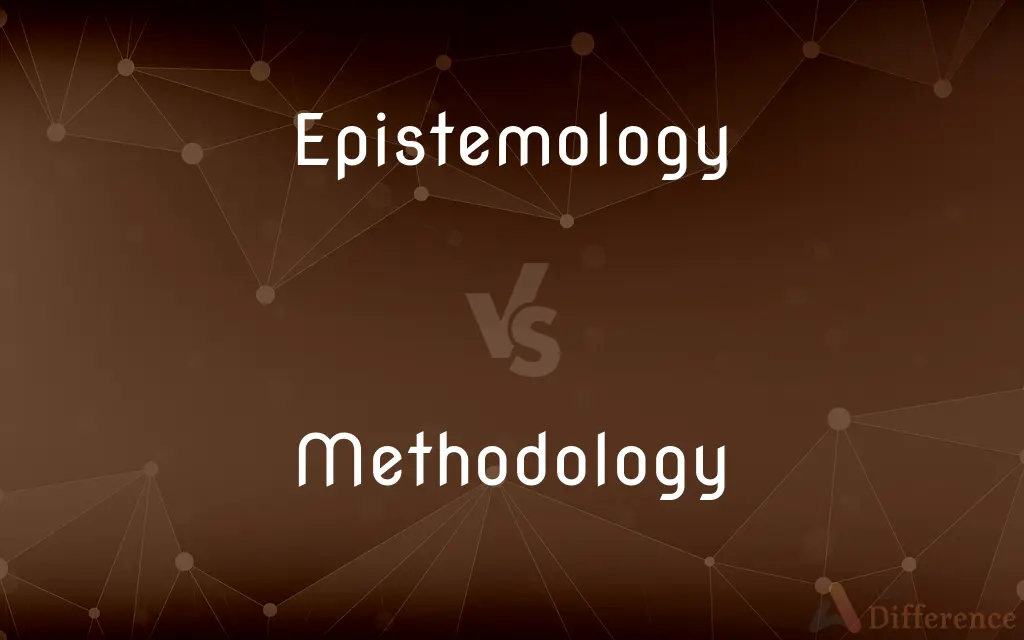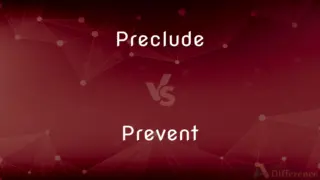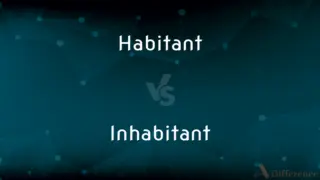Epistemology vs. Methodology — What's the Difference?

Difference Between Epistemology and Methodology
ADVERTISEMENT
Compare with Definitions
Epistemology
Epistemology ( (listen); from Greek ἐπιστήμη, epistēmē 'knowledge', and -logy) is the branch of philosophy concerned with knowledge. Epistemologists study the nature, origin, and scope of knowledge, epistemic justification, the rationality of belief, and various related issues.
Methodology
Methodology is "'a contextual framework' for research, a coherent and logical scheme based on views, beliefs, and values, that guides the choices researchers [or other users] make".It comprises the theoretical analysis of the body of methods and principles associated with a branch of knowledge such that the methodologies employed from differing disciplines vary depending on their historical development. This creates a continuum of methodologies that stretch across competing understandings of how knowledge and reality are best understood.
Epistemology
The branch of philosophy that examines the nature of knowledge, its presuppositions and foundations, and its extent and validity.
Methodology
A system of methods used in a particular area of study or activity
Courses in research methodology and practice
A methodology for investigating the concept of focal points
Epistemology
(uncountable) The branch of philosophy dealing with the study of knowledge; theory of knowledge, asking such questions as "What is knowledge?", "How is knowledge acquired?", "What do people know?", "How do we know what we know?", "How do we know it is true?", and so on.
Some thinkers take the view that, beginning with the work of Descartes, epistemology began to replace metaphysics as the most important area of philosophy.
ADVERTISEMENT
Methodology
A body of practices, procedures, and rules used by those who work in a discipline or engage in an inquiry; a set of working methods
The methodology of genetic studies.
A poll marred by faulty methodology.
Epistemology
(countable) A particular instance, version, or school thereof; a particular theory of knowledge.
In his epistemology, Plato maintains that our knowledge of universal concepts is a kind of recollection.
Methodology
The study or theoretical analysis of such working methods.
Epistemology
The theory or science of the method or grounds of knowledge.
Methodology
The branch of logic that deals with the general principles of the formation of knowledge.
Epistemology
The philosophical theory of knowledge
Methodology
The study of methods used in a field.
Research methodology
Methodology
(loosely) A collection of methods, practices, procedures and rules used by those who work in some field.
Agile methodology
Methodology
The implementation of such methods etc.
Methodology
The science of method or arrangement; a treatise on method.
Methodology
The branch of philosophy that analyzes the principles and procedures of inquiry in a particular discipline
Methodology
The system of methods followed in a particular discipline
Share Your Discovery

Previous Comparison
Preclude vs. Prevent
Next Comparison
Habitant vs. Inhabitant













































